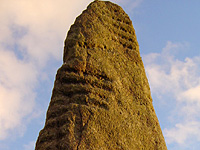|
Mass media as most important source of information
Most of what the public knows about the effectiveness
of tick vaccines, about the discovery of an ancient Maya city in
the rainforest, or about the changing climate comes from the mass
media. For almost everybody radio, television, newspaper, and the
internet are the sole sources for scientific topics.
Different rules
Therefore, scientists who want to make their research
public depend on a good and fruitful teamwork with journalists.
Dealing with media representatives requires, however, experience
and exercise. The rules of media relations, that is to say, are
essentially different from those of the scientific community.
Very few researchers are born with the talent to communicate their
topics in such a way that they are interesting for journalists and
that at the same time the elementary essence of research does not
get lost.
It is possible to communicate the complex to non-experts
while maintaining the real content of a topic. A high level and
comprehensibility are no contradiction. This is Diane Scherzler's
conviction in her daily work as editor for Germany's Public TV&Radio
as well as in her media trainings.
Good media relations can be learned
In her trainings (lasting one to several days) Diane
teaches you how to draw the editors' attention to your research,
exhibitions, etc. You will learn how a press release is written
and structured, and how to give a good interview. You get acquainted
with dealing with the mass media, and you will learn how you can
reduce the probability of mistakes in journalistic contributions.
Several hands-on exercises, which are oriented at your individual
needs, are part of the workshops. Each media training is tailored
to your needs and to your discipline's specialities and can be held
in German or English:
- Media trainings for beginners
- Advanced courses
- One-to-one consulting
- Media trainings with thematic priorities: Press releases, interview,
how to avoid mistakes, how to offer a topic conveniently to the
media, science communication via your website.
Media training, consulting and teaching:
Selected references
University
of Tübingen, visiting lecturer. Courses: "Getting complex
topics to the media" and "How to express yourself comprehensibly
and exactly" (since 2008)
Centre for Academic
Instruction of the Universities in Baden-Württemberg, teacher
of the course "How to teach good and comprehensible writing"
for teaching staff of Baden-Württemberg's universities (2009-2013)
University
of Tromsø, two seminars for doctoral students resp. members
of the university's central administration on science journalism
resp. writing comprehensibly (2012)
Südwestrundfunk
(SWR), teacher for online journalism. Direction of trainee courses
(three two-week courses per year; 2008-2012)
Robert
Bosch Foundation, scientific advice during Euroscience Open
Forum 2010 and 2012 for the foundation's stipendiaries (2010 and
2012)
University
of Freiburg, visiting lecturer. Course: "How to communicate
science comprehensibly and exactly" (since 2010)
University
of Munich, media trainings and course in public speaking for
the students of the Graduate School Life Science Munich (2010 and
2011)
Römisch-Germanisches
Zentralmuseum (RGZM), Media training for researchers and press
information officers (2011)
Helmholtz
Centre for Environmental Research, media training for scientists
of the research project "Integrated Water Ressource Management"
(2011)
European Association
of Archaeologists (EAA), media trainings for the participants
of the annual conferences (2004, 2005 and 2010), consulting on a
media strategy (2005)
University
of Freiburg, workshop for the research group "Popular Knowledge
Cultures" (2010)
Deutsche Gesellschaft
fuer Ur- und Frühgeschichte, media training (2010)
Euroscience
Open Forum (ESOF), media training for conference participants
(2008)
European
Molecular Biology Organization (EMBO), media training for scholarship
holders (2008)
Robert
Bosch Foundation, media training for participants of the support
programme "Denkwerk" (2008)
World
Archaeological Congress (WAC), consulting on a media strategy
(function: Media Advisor Europe, 2003 until 2005)
Tips and information for you
Here you can find several tips and recommendations by
Diane Scherzler about collaborating with the mass media (free download).
 How
to write a successful press release How
to write a successful press release
 Practice:
Preparing to Interact With the Media Practice:
Preparing to Interact With the Media
 Giving
a Good Interview I: Be Prepared for the Questions Giving
a Good Interview I: Be Prepared for the Questions
 Good
Language: Reading Recommendations Good
Language: Reading Recommendations
Interested?
"Making complex topics understandable"
 How
you benefit from a media training - Further information How
you benefit from a media training - Further information
If you are interested in a media training,
please contact
Diane Scherzler.
|

